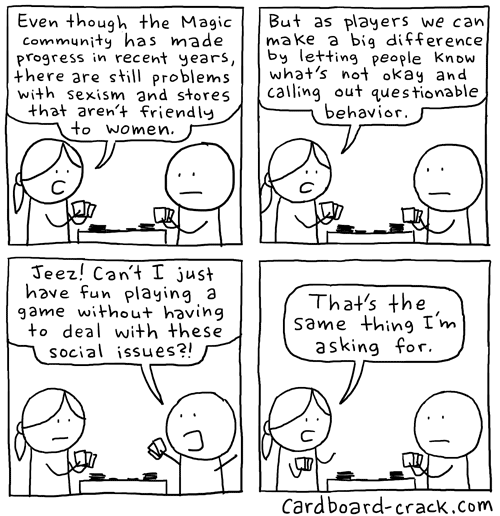Exploratory adventure games, narrative adventures, spatial adventures, environmental adventures, narrative explorations—different, certainly related phrases, all used to describe games that rely heavily on exploration to craft an experiential story. Walking simulators often overlap heavily here, but with games like Her Story, for instance, there’s not much (or any!) walking, so we needed new names. New terms. But perhaps we have so many because none of them really quite fit. When we encounter a game that does something new and surprising, we introduce a new term, the better to capture what’s different about the new iteration.
But perhaps instead of a proliferation of terms to suit a changing industry, we need concepts that touch all these corners.
 Lately, I’ve been playing A Normal Lost Phone, a game of discovery, while simultaneously walking my students again through Her Story. The combination of these two games, and the way they disrupt the notion of the walking simulator, the adventure game, the narrative in general, has me revisiting a concept I started toying with last semester: the notion of the ambient adventure.
Lately, I’ve been playing A Normal Lost Phone, a game of discovery, while simultaneously walking my students again through Her Story. The combination of these two games, and the way they disrupt the notion of the walking simulator, the adventure game, the narrative in general, has me revisiting a concept I started toying with last semester: the notion of the ambient adventure.
Drawing on Thomas Rickert’s (2013) ideas of ambient rhetoric may lead to a more active description of these games that don’t quite fit anywhere else, or that seem to require new and specialized descriptions, in which our considerations of experience “must diffuse outward to include the material environment, things (including the technological), our own embodiment, and a complex understanding of ecological relationality” (p. 3). But how can we use this to find overlaps in these games? Gone Home isn’t Everybody’s Gone to the Rapture, even if they share many ludonarrative sensibilities. A Normal Lost Phone isn’t either of these; it’s restricted to a technological interface. The entire game takes place on the screen of a phone, but the narrative stretches far beyond that seemingly small space; the space becomes an environment, an experience of its own. It’s not the same as a game like Gone Home or Dear Esther, and yet there are elements that overlap, that intertwine to create particular experiences of embodiment, of experience, of discovery. In A Normal Lost Phone, you could be anyone, until suddenly, in the narrative, you have a role to play. You’re no longer just a player; you’re a character, an agent in the action. Her Story develops along a similar path. Firewatch takes your Henry into the mountains on a journey of discovery, but it’s very much your Henry: you design him, and in that way, create your own layer of the game. Your own experience.
Through this lens, the notion of ambient adventure games as a genre considers more than just narrative exploration, but an exploration that considers the unique self performing the exploration, and how that experience fits into larger constructs. Not only then does this phrase potentially fit where others may fall short, it is also responsible to more than just systemic considerations of the form. A Normal Lost Phone isn’t just a series of patterns to follow and clues to discover; it becomes an ethical challenge. Firewatch, unopened, is one game; Firewatch, played and completed, can be seen as another. These concepts are different spokes on the same wheel of ambience. We inhabit these virtual spaces, pouring our selves into them as we explore. We make choices. We create. And as so many of these games offer messages, narratives, even lessons, as we navigate, creating, they create in us. We take pieces away, folding them into ourselves. We become absorbed, and we absorb.
Rickert’s concept of ambient rhetoric touches on all the aspects we haven’t been able to fit into a blanket term for these games, perhaps because we aren’t always thinking of rhetoric when we are thinking of games (unless, of course, you’re like me). But what is an adventure game but a conversation? What is any game but a conversation, the player moving and the machine responding, and vice versa? Rhetoric, then, can serve as a skeleton key that allows us to slip in and out of different aspects of games, from the top down and the bottom up, from the machinic to the human, and the concept of ambient rhetoric can similarly allow us to reconsider a whole swath of games that have remained somewhat elusive in terms of classification.




